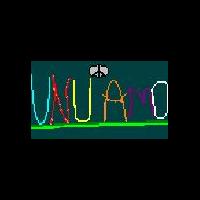
Gregg Shorthand Writers Who Use Esperanto--Are You Out There?
Polaris-ისა და 26 აპრილი, 2010-ის მიერ
შეტყობინებები: 33
ენა: English
ceigered (მომხმარებლის პროფილი) 1 მაისი, 2010 13:05:48

qwertz (მომხმარებლის პროფილი) 1 მაისი, 2010 14:06:18
ceigered:If I'm getting what you're saying, Australia's kind of in the road tooYes, indeed! (Australasia)

qwertz:Does somebody know if it is allowed to rotate the Ying/Yang symbol? (In respekt to religion). So, if yes, that would be great, because I'd like write the asian Esperanto style in Europe, too.ceigered:Anyone found a place where Korean script (Hangul) has been adapted to Esperanto? That'd be cool as well.Yes, sure! That would be cool. So we would have a kind of Ying/Yang hemisphere. If you would project it on the world map. Hhm, okay doesn't work for north-east part (i.e. russian cyrillic). Anyway/Egal/Wie auch immer.

Greyshades (მომხმარებლის პროფილი) 2 მაისი, 2010 15:55:21
Thanks you TC!

kilobytezero (მომხმარებლის პროფილი) 3 მაისი, 2010 01:39:59
The way the Esperanto shorthand book is worded is toward users of the English shorthand, so some principles might be expected from a reader of it that are not taught in the book like they are in the English version. It might be best to learn one at a time.
Glad to see my site is being used!
LyzTyphone (მომხმარებლის პროფილი) 4 მაისი, 2010 15:07:28
wow, look who is here! Saluton there~
-------------------------------------
I can't help but recall the April Fool's day prank by Libera Folio. Cyril Esperanto looks so cool! Бонеге!
Just some more alternative script project, I tried (and failed) to write Esperanto in Chinese ideograms... that's a bit too hard when it comes to which radicals to choose...
And as I don't really know Hangul or Devanagari, I could only tried that on Japanese katakana. Since they are both phonogramic scripts it is indeed much easier.
ド、シァネ エスペラント アンカゥ エスタス レゲブラ エン ラ゛ カタカナ~ かぃ せ ヴぃ しぁたす じん、ヴぃ えち ぽヴぁす すくりび えすぺらんと えん ら゛ ひらがな。
The problem is, I think, that universal problem of "how to make room for sounds not native in the language of the script". In this case it is the R/L differentiation, Ĵ/Ĝ and maybe ĥ to a lesser degree due to its rarity. For those who happen to be interested: ヱン ラ ドスィエロ~
ceigered (მომხმარებლის პროფილი) 4 მაისი, 2010 15:27:47
I'll let you guys figure that one out

LyzTyphone (მომხმარებლის პროფილი) 4 მაისი, 2010 15:53:34
ceigered:Ми пенсас ке уну ебла методо пор диференциги ла ду литерой «р» кай «л» естас самиги катакана кай хиригана, кай узас хиригана литерой пор соной киел Л, ку, су, цу, кай тиел плу, кай узас катакана литерой пор соной киел Р, к', с', ц' кай тиел плу анкаў.That idea is really cool! I've never thought of that! Yes, I think that really will work, if people don't mind some minor uncompatibility in typographic style. (Hiragana is traditionally more cursive than Katakana. For example, for the same letter: A-あア; Ra-らラ)
I will try to incorporate this new idea into the next edition~
andogigi (მომხმარებლის პროფილი) 4 მაისი, 2010 21:47:49
LyzTyphone:I think I would just stick to katakana since it makes more sense for writing foreign stuff. Also, wondering if sxajne shouldn't be written シァイネ.
ド、シァネ エスペラント アンカゥ エスタス レゲブラ エン ラ゛ カタカナ~ かぃ せ ヴぃ しぁたす じん、ヴぃ えち ぽヴぁす すくりび えすぺらんと えん ら゛ ひらがな。
ceigered (მომხმარებლის პროფილი) 5 მაისი, 2010 06:08:36
 (I imagine though that "mi shatasu ra gurandan aoton tiechii pou/poru ji esutasu fouta/foruta" might be seen as some as no longer being their pet IAL
(I imagine though that "mi shatasu ra gurandan aoton tiechii pou/poru ji esutasu fouta/foruta" might be seen as some as no longer being their pet IAL  ).
).(and yes, shajne should be SHIyaINE (with "ya" being the little Katakana "YA" character).
LyzTyphone (მომხმარებლის პროფილი) 5 მაისი, 2010 13:24:28
Just as your fine suggestion, I picked some Hiragana letters and incorporated them into the system Dua - DuKana Skribosistemo (2K2S).
@andogigi, ceigered
oops, you caught me. Actually according to the system I posted myself there it should have been シァィネ, with both ァ and ィ in their "lower case". (Can we really call them so?)
My choice of "シァ" over "シャ" was basically based on a need for schematic. Since I had the vowels as アイウエオ, I reasoned it would be more systematic (and thus more mnemonically helpful) to let the combine-syllables use "lower case" ァィゥェォ. Note that in both the systems I didn't use any from the little ャュョ possibilitties.
And indeed the differentiation between -u and nul-vokalo, if you read carefully, was already taken care of. I did so by giving the unmarked ウ-column to the later and assign a "lower case" ゥ to every one of the -u syllables. I admit the sacrifice seems to be a little hard to justify.
During the process I think I found out that the key to these types of problem solving sometimes lies in the balancing of tradition and the need for regularity. While it was indeed possible in the new system to eliminate all the combine-syllables (the only two remaining are ĉ-チ and ŝ-シ). But I felt it too strange to replace them with some other possible Hiragana letters (なまやが...). This is an example where tranditional irregularity persist on.



